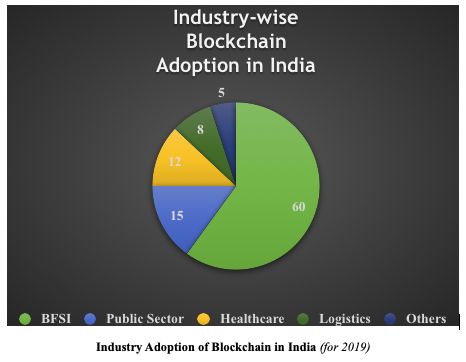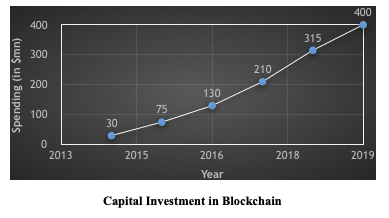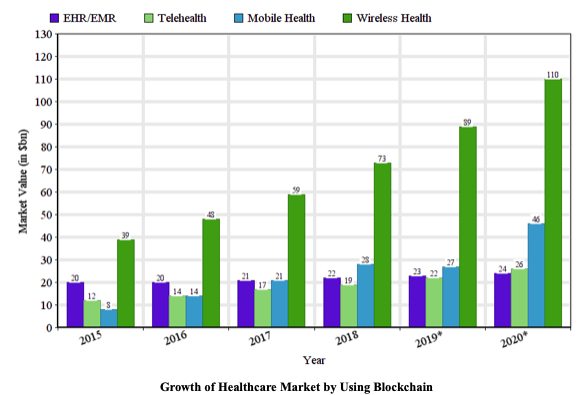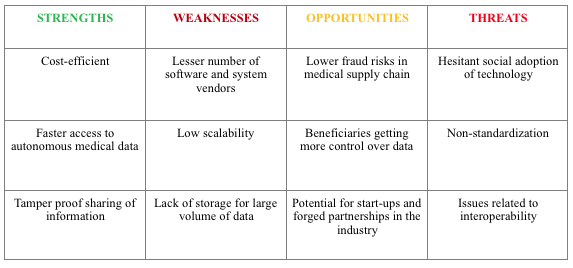Defining Blockchain
A Blockchain refers to a timestamped series of immutable data records that are managed by a cluster of computers that are not owned by any single entity. Each of the blocks of data is secured and are bound to each other by the use of cryptographic principles, known as chains.
The Blockchain network holds a no-central authority. It is shared, and an immutable ledger and the information being stored is open for everyone to see. Any data built on the Blockchain is very transparent, and hence, everyone is accountable for their course of action.
Costs Involved in Blockchain
A blockchain has no transaction costs involved. There is an infrastructure cost, but no transaction costs exist. It is a simple and ingenious method of passing on information from a source to a destination in a fully automated and safer way. One of the parties involved needs to initiate the transaction by creating blocks. The designed block is verified by a vast number of computers present around the net. The verified block is then added to a chain and stored across the net by creating not only a unique record but also a unique record that has a unique history. When a single record is falsified, the entire chain having millions of instances is even falsified, and it becomes virtually impossible. Bitcoin has now and then used this model for carrying out monetary transactions, and it can be deployed in various other ways as well.
The Blockchain can not only transfer and store money, but it can also replace the processes and business models that are dependent on a small fee for carrying out transactions or any other type of transaction between parties.

Working of Blockchain
The information that is held on a blockchain exists as a shared and a continuous-reconciled database. This method of using the network holds several apparent benefits. The database of the Blockchain isn’t located or stored in a single location, i.e. the records are kept public and easily verifiable. There is no centralized version of this information that exists for any hacker to corrupt. The information is hosted by millions of computers present in the network, and the data is accessible to anyone present on the Internet.
Reasons for Blockchain Being Successful
Following are some of the reasons why blockchain has become successful-
- Not owned by a single entity and hence there are no issues of centralization
- Data is stored using a cryptographic method
- Blockchain is immutable, thus no one can tamper or alter the data inside the blockchain
- The blockchain is fully transparent, so it is easy to track the data by the user according to their needs
Properties of Blockchain Technology
1. Increased Capacity
One of the most remarkable features of Blockchain is that it can increase the capacity of the entire network. Many computers working together offer more power than a few devices where things are centralized
2. Better Security
Blockchain Technology provides better security because there is no chance of shutting down the systems. Several computers known as nodes secure the blockchain network, and these nodes are responsible for confirming the transactions on the network
3. Immutability
The creation of immutable ledgers is one of the significant values which drive Blockchain. Any centralized database is prone to getting hacked, and hence, these require trust in the third parties for keeping the database secured
4. Decentralized System
Decentralized technology allows users to store their assets inside a network which is further accessed using the Internet. The asset could be either a contract, a document, etc. The owner holds direct control over his account giving him the power to transfer assets to anyone he wishes.

New Applications of Blockchain
The newer business applications that will rise from Blockchain include the following-
1. Smart Contracts
Distributed ledgers allow the coding of simple contracts that are going to get executed when a set of specific conditions are met. At this stage of technological development, smart contracts can be programmed for performing simple functions
2. Shared Economy
By enabling peer-to-peer payments, Blockchain has opened ways for directing interactions between the parties, which is a genuinely decentralized result of economy sharing
3. Governance
Making the results fully transparent and accessible to the public, distributed database technology can bring full transparency to elections or any other processes which involve poll taking
4. Auditing of Supply Chains
Distributed ledgers can provide an easy way for certifying the genuineness of the products being purchased. Transparency is achieved by a Blockchain based time timestamping of a date and location which can correspond to a product number
5. File Storage
The decentralized file storage brings a lot of benefits. Distribution of data throughout the network can protect files from getting hacked or lost
6. Prediction Markets
The crowdsourcing of predictions on an event is proven to have a higher degree of accuracy. Averaging opinions can cancel out the unexamined biases which could distort judgment
7. Identity Management
There has been an increased need for better identity management on the Internet. The ability to verify an individual’s identity has remained the anchor for all the financial transactions happening online. Distributed ledgers offer enhanced methods for proving an individual’s identity along with the possibility for the digitization of personal documents
8. Anti-Money Laundering and KYC Practices
Anti-money laundering and KYC practices have great potential and need to be adopted by blockchain technology. Financial institutions need to perform a labour-intensive multi-step procedure for `every new customer. KYC costs can be reduced by cross-institutional client verification and also by increasing monitoring and analysis at the same time.

How Blockchain Benefits the Healthcare Industry
The healthcare industry should look to invest in Blockchain technology to gain the following benefits-
1. Easy Exchange of Health Data
The exchange of health data is one of the essential features that Blockchain offers the healthcare industry. Healthcare startups can use blockchain-enabled IT systems for delivering technological solutions for many challenges which include health data security and interoperability.
Blockchain technology gives healthcare data exchange systems a seamless access to real-time patient data by eliminating the cost and burden of data reconciliation
2. Building Smarter Contracts for Flexibility
Blockchain technology makes it possible to develop smart contracts. Smart contracts allow doctors to exchange information with more flexibility and freedom and inline with health-related decisions, be it a patient willing to disclose health records or a doctor sharing information with his fellow doctors
3. Resolving Challenges of Cybersecurity
The healthcare industry is known for its strict policies and regulations, ensuring the security and privacy of data. With the increase in the number of cybersecurity threats, new problems are created for emerging digital workflows.
Since it is not possible to hack or modify the data saved on the Blockchain, this technology can help in resolving the cybersecurity challenges facing the industry
4. Reducing Costs and Gaining Efficiency
Healthcare-related organizations and firms can use the Blockchain for record management as well as bridging traditional data silos, thereby increasing efficiency and keeping medical data safe. This technology can also streamline the entire process for patients to access their medical records and securely share data. By using blockchain technology, the transfer of medical records between two institutions is likely to decrease, thereby making the process of auditing much more manageable.


SWOT Analysis of Blockchain in Healthcare

Blockchain along with other technology drivers such as IoT and machine learning have become a key driver for triggering new digital processes. It has already begun to revolutionize healthcare. With the rapid development of blockchain as a technology, many companies in the healthcare arena are looking to implement it for their business. This includes the pharmaceutical companies along with hospitals and healthcare institutions where the usage of blockchain would lead to faster and more efficient problem-solving. Blockchain will make it easier to deploy technologies for smart storage of data, different transactions as well as patient care and research.





